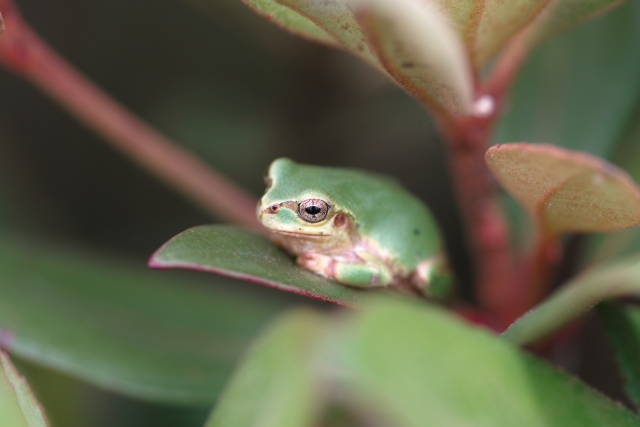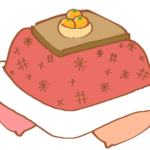Kaeru ga Naku kara Kaero (蛙が鳴くから帰ろ)
Kaeru ga Naku kara Kaero
蛙が鳴くから帰ろ
One of the most famous traditional children’s songs in Japan is kaeru ga naku kara kaero (蛙が鳴くから帰ろ).
有名なわらべうたに、「蛙が鳴くから帰ろ」があります。
Kaeru (蛙) means “frog,” naku (鳴く) means “call/sing/croak,” kara (から) is a causal conjunction, and kaero (帰ろ) means “(let’s) go home.”
「蛙」は “frog”、「鳴く」は “call/sing/croak”、「から」は原因・理由を表す接続助詞、「帰ろ」は “(let’s) go home” を意味します。
That is to say, the literal meaning of this song is “let’s go home because frogs are croaking.”
すなわち、この歌の文字どおりの意味は “let’s go home because frogs are croaking” となります。
Frogs are a nocturnal animal that begins to croak in the evening, so the sound can be a sign for the time that childrens go home.
蛙は夜行性動物で、夜になると活発に鳴き始めるため、子どもが家に帰る時間の合図になり得るというわけです。
In addition, this song is also a pun — both kaeru (蛙 – “frog”) and kaeru (帰る – “to go home”) have the same sound.
また、”frog” を意味する「蛙」と “to go home” を意味する「帰る」は同音であり、ダジャレにもなっています。




